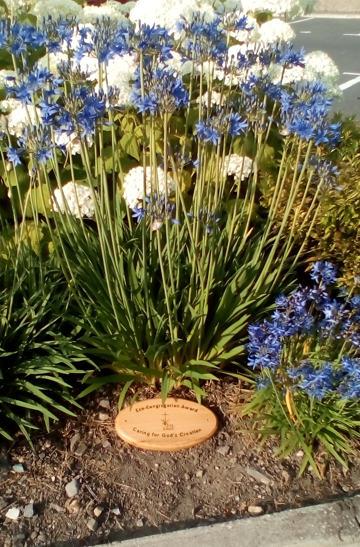
In early June 2021 the North Eastern and South Western provinces of the Presentation Sisters celebrated the reception of their ECI awards via zoom. The ceremony had been planned as a national gathering in June 2020 but it had to be postponed due to Covid. Rather than postpone the event again they celebrated via zoom. The award plaques were posted to the two groups. The story was told of the plaques as it was very relevant to the eco justice work of the Presentation family. The wooden award plaques are made from recycled church seats in the Grassmarket Community Project in Edinburgh. This project takes an innovative approach to creating community and providing sanctuary and support to participants, many of whom are amongst the most vulnerable of their citizens. Through mentoring, social enterprise, training and education in a nurturing environment ,the project develop skills which enable participants to develop their full potential and move away from cycles of failure.
The entire report on the work of the Presentation family could stand as a template for other larger organisations seeking a model to follow. It is wide ranging in its concerns, many of them concerns the Sisters and the Presentation family have been articulating for a long time. In the past two decades however, these concerns have been brought into sharper focus for them by the setting of the Millenium Development goals and more recently by Laudato Si’ and by the Sustainable Development Goals.
What is of particular interest is how these ambitious goals have been articulated into achievable ‘doings’, something their motto, ‘not words but deeds’ makes clear, thereby giving everyone, young or older, a voice and an appropriate responsibility. The report on their work records how the entire international Presentation family has been involved, differently in different settings.
The ‘bog’ story at Lixnaw is of course a unique expression of that. It is remarkable because it stands as a symbol of what must be done (a kind of scriptural Jubilee gesture) by allowing the land to rest. But it also stands as an action that will mean and continue to mean an increase in biodiversity for the area and act as an important contribution to help mitigate the effects of climate change. Its symbolic value, however, is not to be underestimated because it is a landmark in the charismatic story and a point of reference for all Presentation environmental activities.
The awareness of what is happening to our planet seems to have entered into the bloodstream of many Presentation educators. Their capacity to make it real in their schools -‘challenge 2 change’ and following the Green Schools programme – and in their communities by matching ministries to the Sustainable Development goals is hugely commendable.
The final report on the work in Ballygriffin and Sustainable Living is most impressive. It could work as a stand- alone document in its comprehensive list of recommendations that are within the scope of every person. It is a fascinating and necessary piece of educational syllabus that one would like to see taught far and wide. God bless the work.

